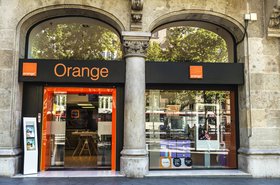BT’s fiber subsidiary Openreach reported a 30 percent fall in copper phone and broadband cable theft over the last year, according to a report from ISPreview.
The company has attributed the decrease to the deployment of tracking technology SelectaDNA.
SelectaDNA is a synthetic DNA and UV tracer that is sprayed directly onto cables and associated equipment.
The marker works by leaving a unique DNA trace on people and vehicles that have contact with it. The tagging formula uses synthetically-manufactured DNA particles to create a unique ID code.
If an operator’s kit is stolen and police recover it, it can be linked back to the location it was stolen from. The method recently secured three convictions in Lincolnshire for the attempted theft of copper cables.
A spokesperson from Openreach said: “The loss of phone and broadband is not only inconvenient but can put vulnerable people at risk. Repair work also pulls our engineers away from other work, can take weeks to finish, and cost thousands of pounds.”
The company added: “We take the security of our network seriously and have a wide range of crime prevention tools to prevent thefts and catch those responsible. Our dedicated security team investigates all attacks and our network is alarmed and monitored 24/7 by our control center.”
A spokesperson for SelectaDNA said: “The benefits of using SelectaDNA are twofold. Not only does it help prevent and reduce crime, it also helps the police by providing irrefutable evidence to link offenders to crime scenes. Openreach’s approach to tackling crime is very proactive and innovative, and results like this demonstrate how well their tactics are working.”
Openreach is not able to coat copper cables that are already deployed underground.
The All-Party Parliamentary Group (APPG) found that metal theft has cost the UK economy an estimated £4.3 billion ($5.36bn). Cable theft crimes have been on the rise for several years, partly due to the high price of copper. DCD reported earlier this month that copper demand is expected to reach 1 million tons by 2030 with prices ever-rising.
The rollout of full fiber will also reduce thefts as fiber has no value to thieves. However, batteries in street cabinets still retain their value, but can also be protected with SelectaDNA.
Other theft prevention methods include the use of chemical signature technology such as SmartWater. The method was used across the national rail service and used liquid-based chemicals to make the sale of stolen chemicals more difficult.
Last year in Oxfordshire, cable thieves left a UK village without Internet connectivity for almost two weeks after more than 500 meters of copper cable was stolen from Openreach’s network. Last month, two people were arrested in Texas, US, for the theft of a copper cable.







